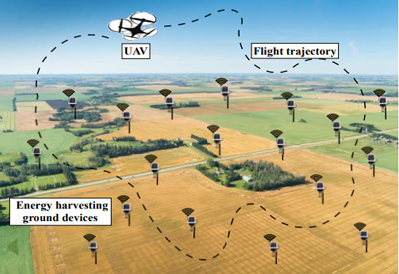CISTER uses AI technique in a new way to enable faster data collection using UAVs in large-area sensor networks
5, Aug, 2021
 The Journal Paper entitled "LSTM-characterized Deep Reinforcement Learning for Continuous Flight Control and Resource Allocation in UAV-assisted Sensor Network", authored by Kai Li, Wei Ni, Falko Dressler is published in IEEE Internet of Things Journal.
The Journal Paper entitled "LSTM-characterized Deep Reinforcement Learning for Continuous Flight Control and Resource Allocation in UAV-assisted Sensor Network", authored by Kai Li, Wei Ni, Falko Dressler is published in IEEE Internet of Things Journal.
Unmanned aerial vehicles (UAVs) can be employed to collect sensory data in remote wireless sensor networks (WSN). This is useful in many real-life situations like agriculture monitoring, forest fire prevention and control, smart traffic management, and other similar situations where there is the need to gather information over very large areas but keeping costs and resource usage to the minimum while guaranteeing an adequate quality of service.
Due to UAV's maneuvering, scheduling a sensor device to transmit data can overflow data buffers of the unscheduled ground devices. Moreover, lossy airborne channels can result in packet reception errors at the scheduled sensor.
This paper proposes a new deep reinforcement learning based flight resource allocation framework (DeFRA) to minimize the overall data packet loss in a continuous action space. DeFRA is based on Deep Deterministic Policy Gradient (DDPG), optimally controls instantaneous headings and speeds of the UAV, and selects the ground device for data collection. Furthermore, a state characterization layer, leveraging long short-term memory (LSTM), is developed to predict network dynamics, resulting from time-varying airborne channels and energy arrivals at the ground devices.
To validate the effectiveness of DeFRA, experimental data collected from a real-world UAV testbed and energy harvesting WSN are utilized to train the actions of the UAV. Numerical results demonstrate that the proposed DeFRA achieves a fast convergence while reducing the packet loss by over 15%, as compared to existing deep reinforcement learning solutions.
Related Projects:

